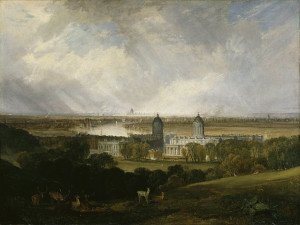Anthony Hunt (1)
c1734-96.
Hunt was commissioned lieutenant on 2 April 1757.
He was promoted commander of the slop Tamar 14 on 16 October 1767 at Plymouth in succession to the late Captain Henry l’Anson, who had died whilst bringing her around from the Downs under orders for the Falkland Islands. In his stead Hunt took the Tamar out to the Falklands, which islands had been claimed by Commodore Hon. John Byron in 1765, and where Captain John MacBride had established a colony at Port Egmont in 1766.
Whilst on a cruise around the islands in November 1769 Hunt, the senior officer on the station, discovered a Spanish sloop on a survey and instructed it to leave, but instead he was informed of a Spanish settlement at Port Solidad on the eastern island, and he received a letter from its ‘governor’ declaring that the islands were the property of Spain, and that he should leave. The situation escalated with the arrival of two Spanish frigates and a regiment at Port Egmont from Buenos Aires on 20 February 1770, and after some courteous and civil correspondence Hunt left the islands on 6 March to return home for instructions. His successor, Commander George Farmer, late of the wrecked sloop Swift, remained in the islands with the sloop Favorite, Commander William Maltby, and a storeship until evicted by the Spanish in June. Meanwhile the Tamar reached Plymouth on 30 May to be paid off shortly afterwards, but with the dispute escalating Hunt was ordered to attend Parliament in December on a motion laid by the Earl of Chatham.

Greenwich Hospital
He was one of many officers posted captain on 10 January 1771, being appointed to the Ludlow Castle 44, although he appears never to have taken her to sea, for when she was docked at Portsmouth in the late spring her timbers were found to be so rotten as to render her unfit for service.
Hunt commissioned the Sphinx 20 in October 1775 and sailed for North America via Cork from Plymouth in January 1776 with three transports, being present at the unsuccessful attack on Charleston on 28 June. He saw further service off that port and the Delaware into the autumn, and was present at the occupation of Rhode Island on 8 December. After sailing out of New York in May 1777 the Sphinx captured a large brig laden with stores and arms for the rebels, and in June she was instructed to take a convoy from New York to Antigua and then return. Hunt’s command was present in the Philadelphia campaign of August – November, and later patrolling off Cape Henlopen she took several privateers including the Eagle on 30 November and the Rover on 1 December. Hunt left the vessel shortly afterwards to return home.
During the winter of 1778 he commanded the Hector 74 in a temporary capacity for Captain Sir John Hamilton in home waters, and in March 1779 he recommissioned the Portland 50 as the flagship of Rear-Admiral Richard Edwards at Newfoundland, sailing thither in June. After returning home he was present in Commodore Charles Fielding’s squadron that detained a Dutch convoy on 31 December. He remained in command of the Portland until the early part of 1780.
Hunt’s final active service came with his commissioning of the Spanish prize Diligente 70 as a receiving ship at Portsmouth in April 1780, retaining her until November 1782, and occasionally flying the flag of the port admiral, Admiral Sir Thomas Pye. His ship took on board over two hundred men who were rescued from the sinking of the Royal George 100 at Spithead on 29 August 1782.
Hunt died, the second captain of Greenwich Hospital, in January 1796, at which institution his wife was the matron.
He was married and had at least one daughter.
